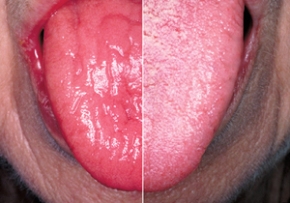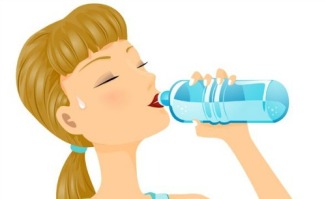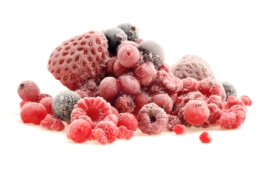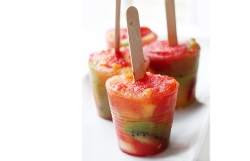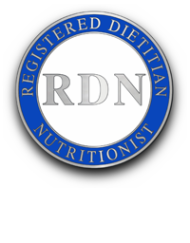Common issues during cancer treatment
Dry mouth
Dry mouth is a common side effect of radiation therapy, some types of chemotherapy, and some medicines. Radiation therapy to the mouth area can decrease the amount of saliva your body produces or make the saliva thick or stringy. Some people can relieve mild dry mouth by sipping fluids. Others may have more severe dry mouth and experience problems with eating, talking, and sleeping. Dry mouth also raises your risk for dental cavities and mouth infections.
Food and Drink Choices to Manage Dry Mouth and Thick Saliva
- Drink 8 to 10 cups of fluid a day to keep your mouth moist and help loosen thick saliva.
- Limit drinks with caffeine (such as coffee, tea, and colas) and alcoholic beverages.
- Carry a water bottle with you and sip from regularly.
- Eat soft, bland foods that are room temperature or cold, such as blenderized fruits and vegetables; well-cooked, tender beef, chicken, or fish; and thin, moist cereals.
- Moisten foods in broth, soup, sauces, gravy, butter, or margarine.
- To increase saliva, try tart foods and drinks, such as lemonade or cranberry juice. Very sweet foods and drinks may also help.
- Avoid acidic foods and drinks if you have a sore or tender mouth.
- Enjoy soothing frozen fruits, such as frozen whole grapes, banana pieces, melon balls, peach ices, or mandarin orange slices.
- Suck on frozen fruit pops, like Popsicles, fruit ices, sorbets, ice chips, or other cold foods.
- Chew sugar-free gum or suck on sugar-free candy to stimulate saliva. Citrus-flavored candies, such as lemon drops, often work best.
If you are having trouble eating, talk with your registered dietitian (RD) about whether you should use liquid meal replacements.
Dehydration
- Dehydration is caused when you do not take in enough fluids to replace fluids lost through bodily functions like urination, bowel movements, and sweating.
- A sore mouth or throat, nausea, or a poor appetite may keep you from drinking enough fluids.
- Vomiting, diarrhea, fever, and/or excessive sweating can cause above-normal fluid losses.
- You may also become dehydrated if you urinate more than usual because of uncontrolled diabetes or use of water pills.
- Fluid loss can be made worse by some medications, caffeine, and alcohol.
Symptoms of dehydration may include
- Thirst
- Dry mouth and tongue, dry and cracked lips and skin
- Dark-colored urine
- Headache
- Voiding frequent, small amounts of urine
- Constipation (hard, small stools)
- A heart rate that is faster than your usual heart rate
- Confusion or change in thinking.
- Dizziness or light-headedness when standing up.
To Avoid Dehydration
- Drink small amounts of fluids as often as you can tolerate them.
- Watch the clock and plan to drink at least a cup of fluid every 1 to 2 hours.
- Each day drink a total of about 8 to 12 cups of liquids a day. (Drink more if you have diarrhea or are vomiting.)
- Ask family and friends to encourage or remind you to drink more fluids.
- Keep a water bottle with you during the day to sip on.
- Keep a glass of water beside your bed to sip on at night.
- In addition to plain water, also drink fruit juices, soft drinks, flavored waters, decaffeinated coffee and tea, sport drinks, milk, and other beverages.
- Eat foods that are high in fluids, like bouillon, broth-based soups, gelatin, fruit ices, popsicles, sherbet, milkshakes, and medical nutritional supplement drinks.
- Avoid alcoholic beverages.
- Limit drinks with caffeine to two a day.
Dehydration can be serious and requires immediate medical attention.
Call your doctor if
- You are unable to urinate.
- Your heart rate is faster than usual.
- You feel confused.

